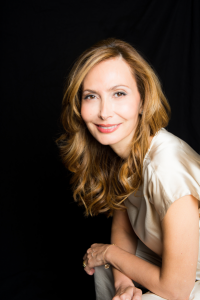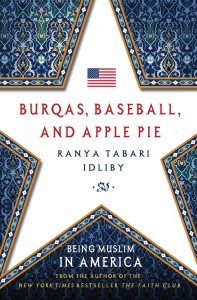Writing as Therapy
 I am a private person by nature. Yet in my memoir, Burqas, Baseball and Apple Pie, I share my most private and intimate thoughts with the world: never an easy task. Readers may wonder at the incongruence, but at the heart of the contradiction is the answer to the question: why do I write?
I am a private person by nature. Yet in my memoir, Burqas, Baseball and Apple Pie, I share my most private and intimate thoughts with the world: never an easy task. Readers may wonder at the incongruence, but at the heart of the contradiction is the answer to the question: why do I write?
A loner by nature, sensitive and a little shy, I am a little guarded with people I personally know, not as forthcoming in shared intimacies; but I am passionate about what connects us as in our shared humanity, often moved to tears by its random and anonymous public expressions performed by perfect strangers: the old couple at the park sitting on their bench, still visibly in love; the grieving father, whose daughter so very ill, is bound to a wheelchair; and infinite intimate instances of human kindness and love.
Humanity is my best and most intimate friend, and it is why I write. Writing anchors me; it affirms those emotions that I feel most sincerely; it connects me with my truth. Without writing I risk losing my equilibrium. Writing is that time of my day when I recalibrate, reflect and consider.
It is cathartic and enlightening and the ultimate luxury- for writing takes time. I am most urgent in my need to write when I am at a crossroad in my life; when I am anxious about an issue or confused-I write. My first book, The Faith Club, came out of the confusion, isolation and fear of 9/11. I was concerned about the future of my American born children as Muslims, when Islam in the eyes of many, was condemned as a violent religion of terror.
The Faith Club allowed me to explore my connections to Judaism and Christianity, allowing me a deeper appreciation of the ecumenical spiritual underpinnings of Islam, confirming why we still choose to be Muslims. Burqas, Baseball and Apple Pie, my most recent memoir, explores my family’s connections as secular and progressive Muslims to Islam and as American Muslims to America.
Two experiences that challenged and confused me were the two trigger catalysts for the book. The first happened in Omaha. I was still on a speaking engagement when an older gentleman took issue with me as a Muslim. “ Your people are the source of violence all over the word,” he complained. “ My people are your people,” I explained, “ I am an American too,” I added, hoping that our shared patriotism would assuage his concerns. “ Oh no you’re not,” was his response.
The second catalyst was the short and tragic life of Aisha, the thirteen- year old Somali girl I had met on the BBC radio news report. She was killed in the name of Muslim justice. She had naively gone to a Sharia court to report her rape and was swiftly stoned to death for adultery. I could no longer in good conscious dismiss the incident as an aberration or an exception caused by a failed Somali state.
I needed more. I needed her pain to become our pain. I was angry and confused. I needed absolute clarity and absolute Muslim positions that demanded a zero- tolerance policy; an Islam invested in the twenty -first century not a mythical seventh century Arabia. In a way, I write to be a better person: a better mother; a better Muslim; a better American.
 Once I decide to tackle a new writing project, I practice a number of tangible rituals: I buy a new journal (picking out colors and patterns auspiciously) and my favorite thin felt pens in at least four colors. In the beginning, as I try to organize my thoughts and develop my ideas, I always write in longhand.
Once I decide to tackle a new writing project, I practice a number of tangible rituals: I buy a new journal (picking out colors and patterns auspiciously) and my favorite thin felt pens in at least four colors. In the beginning, as I try to organize my thoughts and develop my ideas, I always write in longhand.
It is another element of the writing process that I find therapeutic: the physical pleasure of handling a journal, the idiosyncratic notes and short hand that is all my own, and the recognizable curves and slants of my handwriting, help me focus and dream on. I only move to typing on a computer when I have a clear idea of what I want to say, but the journal will continue to be an important part of the process.
It is my intimate friend. It is where I will go back to doodle, experiment with an idea, or track the changes in my thoughts. It is the conversation I have with myself. Eventually, I am ready to share. My mother, sister, and husband are my critics of choice.
My least favorite part of the writing process is the infinite drafts. By the time it is ready for publication, I am more than ready to move on; but ultimately that is the beauty of writing; the most meaningful part of writing. It is my love letter to my children and their children after I pass. Writing is the gift of an afterlife to my fleeting life.
—
Ranya Tabari Idliby is a writer who lives in New York City. She co-authored The Faith Club: A Muslim, A Christian, A Jew: Three Women Search for Understanding , an intimate dialog on faith and identity in America. She has spoken in churches, temples, and mosques, as well as at interfaith organizations, the United Nations, and the State Department.
She was interviewed by Diane Sawyer for a special program on moderate Muslim voices, in addition to many other media engagements, including CNN, Oprah radio’s Dr. Oz , The Diane Rehm Show, USA Today , and the Today Show. Buy her Memoir Burqas, Baseball and Apple Pie here
Category: Contemporary Women Writers, On Writing

























I have always found writing to be therapeutic if not therapy! I coach writer’s to ‘Write Your Life’ and focus on how it felt rather than on what happened. I am still struggling with the integrity of my own story. It is a very difficult and brave thing to do.
Your books sound wonderful and timely. I have put the names on my reading list. As a Muslim whose practice of the religion seems very different from how the evening news portrays it (the loudest person gets the most attention, never mind if they are wrong) feels important to reach certain understanding and clarity through research and writing. When I was going through my own confusion about what Islam really is (the media can be very persuasive) I read a lot of the wonderful Dr Fatima Mernissi and Reza Aslan. I am secular and this is not at odds with my faith. I am currently exploring that in my writing. Looking forward to reading your books.
It is so nice to know that someone else shares my idiosyncrasies about writing (smile). This was a joy to read and it touched my soul. It also caused me to research the story of Aisha and it fueled my passion to keep helping women who have experienced sexual assault and sexual abuse. Thank you for sharing a bit of your eternal words with us. God bless you.
I especially love this: “It is my love letter to my children and their children after I pass. Writing is the gift of an afterlife to my fleeting life.” I feel this urge too–I would imagine most writers who are mothers do!
Thank you for sharing your writing process here, and also for your books. Your voice and perspective are so critical to finding solutions to the tragedies that come from intolerance and hatred, on all sides.
I find it interesting that privacy and shyness must take a second stage to your need to speak out and to explore these very difficult issues. I’m glad that they do, as I look forward to reading your books.
Your books sound amazing. I am working through a couple books (The Memoir Project, by Marion Roach Smith and How The Light Gets In by Pat Schneider) that are challenging my idea of digging deeper into the darkness to get to my truth. It’s incredibly vulnerable feeling, and yet, as a reader, those are the very books that resonate with my soul. Your books sound like they get to that level. I look forward to reading them.